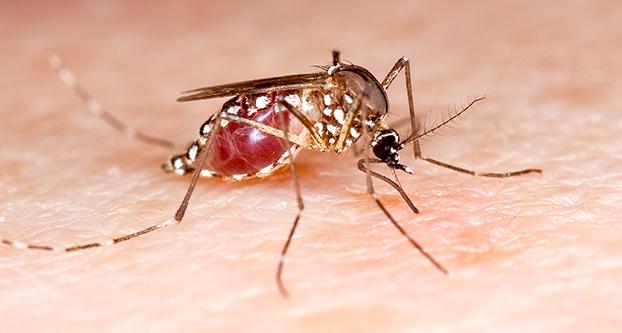Move over Ebola, there’s a new virus that’s the talk of the town. Zika virus, spread primarily through Aedes mosquito bites, captured global interest after a major outbreak in Brazil last year.
Generally the effects of the virus are mild. The Centers For Disease Control and Prevention (CDC) says only one in five infected people develop symptoms that include fever, rash, joint pain and red eyes. Zika is raising concern, however, for its possible link to a number of babies born with abnormally small heads, a condition called microcephaly.
Dr. Ken Bird, health officer with the Fresno County Department of Public Health, said that although the disease is not a confirmed cause of microcephaly, it is heavily associated with the defect. Zika’s potential to cause microcephaly has raised caution for pregnant women traveling to infected areas.
“If young women are traveling to those areas right now and they are either pregnant or may be pregnant and they come back, it might be a good idea to talk to their medical care provider about the travel,” Bird said. “Because when they come back, if they are not sick but they are pregnant, it’s possible they could have been infected, and then there’s things the provider can do.”
So far, cases of Zika in the United States have only been reported by people who traveled to countries with Zika-carrying mosquitos. Twenty South and Central American countries have confirmed cases of Zika. The CDC says areas where the Aedes mosquito is common could see outbreaks of the virus.
Dr. Dan Little, a physician at the Fresno State Student Health and Counseling Center, said that an outbreak in Fresno, while possible, is very unlikely.
“It could possibly come here, but everything from CDC seems to be indicating that if there is widespread to the U.S. the area of concern is the Southeast, but it’s possible we could see it,” Little said. “If it does come here, then you’d just treat it like a mosquito-borne illness. The main thing there is prevention.”
Wearing long sleeves and repellent while eliminating mosquito breeding grounds is recommended to reduce risks.
If a student does contract the virus, the Health Center is equipped to provide information and assistance.
“We would give them advice in terms of dealing with symptoms,” Little said. “If we had suspicions and wanted to test, we would coordinate with the county health department.”
The center is proactive in detecting foreign diseases and always asks visiting students about recent travel. Wendy Oliver, director of clinical services at the Health Center, said students can receive information on immunizations and health warnings before traveling from the center.
“Our providers go to the CDC to look at travel and health warnings,” Oliver said. “It provides a great amount of information for other things, other than just Zika, and ways that students can protect themselves when traveling abroad and if they need any special immunizations.
Currently the Health Center has information on Zika and other critical diseases posted on its website. Little said communication and sharing information is crucial with outbreaks.
“That’s really the biggest thing with these types of outbreaks, is getting information and working with the public health experts,” Little said. “Like Ebola, measles and meningitis, with any kind of outbreak, we work to communicate with the university and the community.”




